BY LINCOLN ANDERSON | Like opening a rocking time capsule from the 1960s, the sights, sounds and excitement of Beatlemania came to life once again for one special night at City Winery, thanks to The Village Trip festival.
Titled “It Was 60 Years Ago Today: A Beatles Conversation With Cousin Brucie and Jamie Bernstein,” the Feb. 5 event at Pier 57 brought together Beatles fans to hear legendary radio DJ Bruce Morrow and Jamie Bernstein, the daughter of composer Leonard Bernstein, share their memories of and reflections on those heady days. Joining them on the bill was Blac Rabbit, a Brooklyn rock duo who uncannily channel the Fab Four’s sound.
Bernstein was the epitome of a superfan of the British Invasion group.
“I was 11 in 1964, in sixth grade — it was perfect,” she recalled.
Just as smart phones are ubiquitous today, back then people were surgically attached to their radios. Bernstein recalled waking up in the morning and listening to the Beatles on her clock radio, then digging them in the schoolyard during lunch on her new-fangled transistor radio her dad had brought back from Japan: “When a Beatles song would come on, I would yell, ‘Beatles!’”
Her father, the subject of the new Hollywood movie “Maestro,” starring Bradley Cooper, was a huge fan of “the lads.”
“He wasn’t kidding,” Jamie Bernstein stressed. “He really loved the Beatles. … He sang ‘And I Love Her’ in the middle of his Young People’s Concert to demonstrate sonata form.”
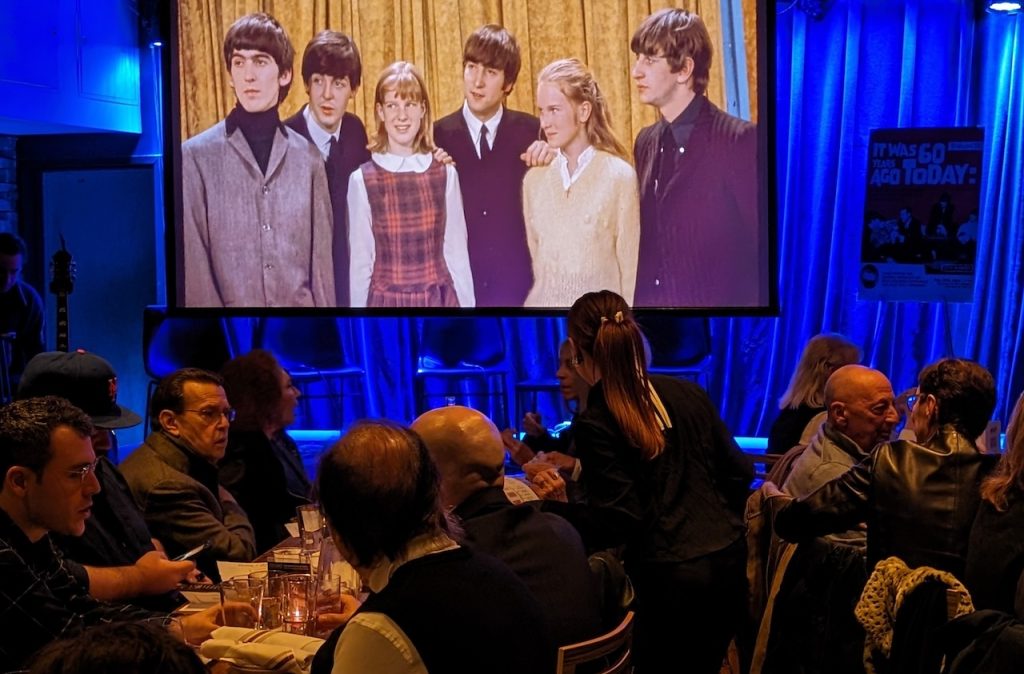
She said the composer also was wowed by the way “Good Day Sunshine” ends with a key change.
“He loved ‘Revolver’ better than any of the albums,” she recalled. “That was his favorite.”
She recalled how she, her father and brother once were singing “Love Me Do” in a swimming pool and that since the song only had a two-part harmony, Leonard made up a third, higher part for Alexander.
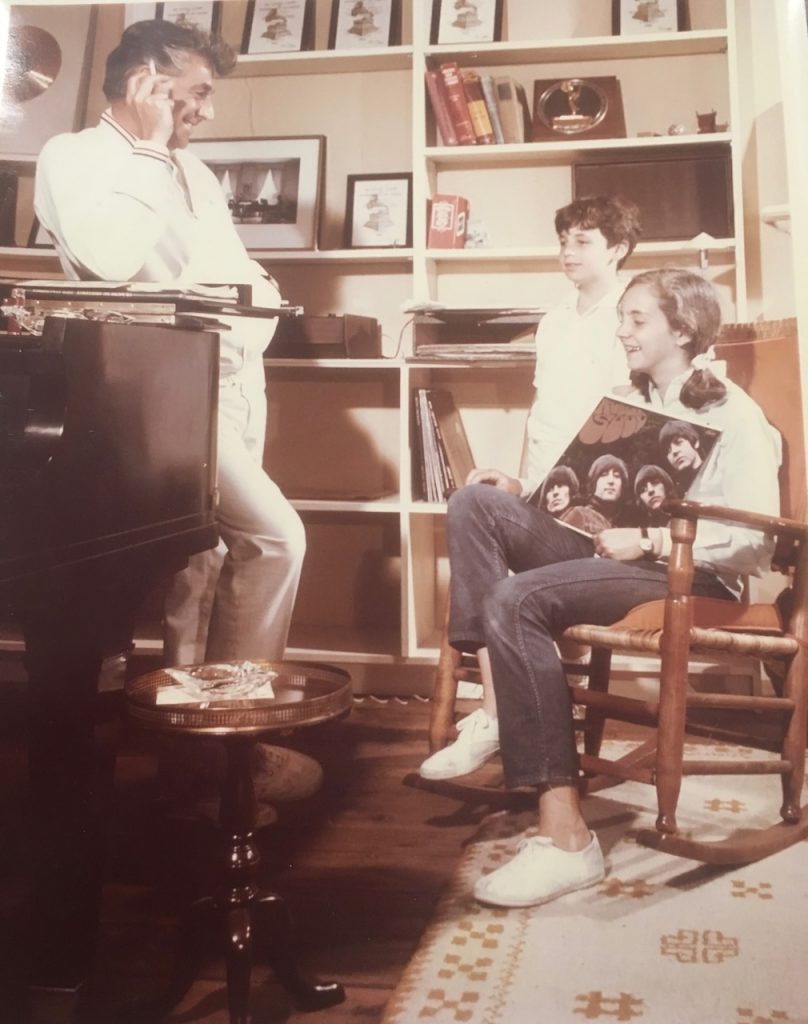
Bruce Morrow a.k.a. Cousin Brucie offered another perspective on the band, not just as a fan but as a music industry insider.
“We needed something in American music,” he said. “It was very quiet.”
Yet, he noted, some derisively viewed the Beatles as “upstarts with long hair — it was down to their earlobes — doing Chuck Berry and the Everly Brothers.”
He noted the band’s explosion in America was not a random fluke but was very much orchestrated.
“The Beatles, cousins, did not just happen,” he said, familiarly addressing the crowd the way he did back when he was on WABC and still does today on his Sirius radio show (’50s, ’60s and ’70s music). “The record industry said the Beatles are coming. It was a lot of money.”
Like Bernstein, Morrow said radios were both the glue that held together the youth culture and a portal to possibilities.
“Like today’s iPhone, the radio gave freedom,” he said.
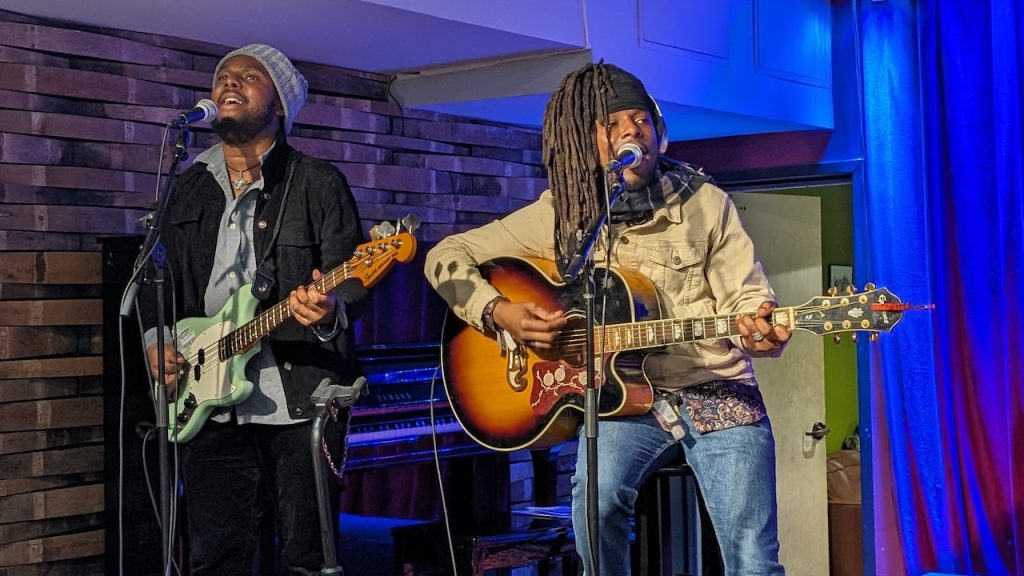
Meanwhile, the American press corps that greeted the Beatles at the newly renamed J.F.K. Airport “was very snippy with the boys,” Morrow recalled. It was not a youth-oriented media at that time, the DJ said. The band bristled.
“They represented Mom and Dad,” he noted of the reporters. “The boys came across a little wise guy-ish. One guy asked Ringo, ‘Hey Ringo, when’s the last time you got a haircut?’ — and that was it.”
Basically, he said, the press “had their spears out.”
“After a year or so, the adults latched onto the Beatles,” he noted. “It became an adult thing, too. We got Mom and Dad to meld with us, to morph with us.
“The Beatles had a tremendous impact on our culture,” Morrow reflected. “They really helped turn us around and bring us together.”
DJ Morrow shaped the culture, too, Bernstein said, gushing, “You were such a part of our lives!”
Morrow went on to share memories of the Beatles’ performances on “The Ed Sullivan Show” and at Shea Stadium.
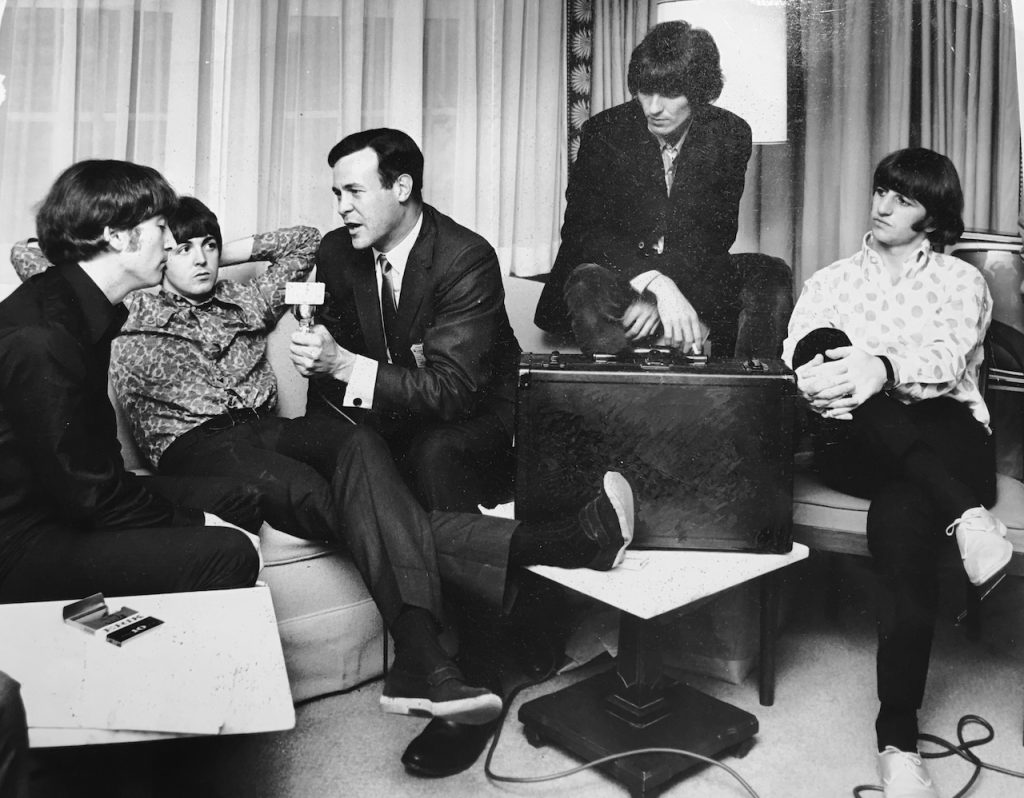
The former was “like New Year’s Eve,” he said. He recalled waiting with the band in the dugout to take the stage at Shea, as the crowd of 55,000 was going wild, and Paul McCartney asking him, “Cousin, is this going to be safe?” Morrow said yes — but he admitted to the City Winery crowd that he was concerned, too. He said Sullivan asked him the same thing, and he just answered, “Pray.”
“When they all screamed at once,” he said, “it was like 27 747s taking off. … People were there to share the space with them — it wasn’t about the music.”
Bernstein watched “The Ed Sullivan Show” performance at home.
“I insisted that the little TV be rolled into the dining room,” she said, “because I was not going to miss it.”
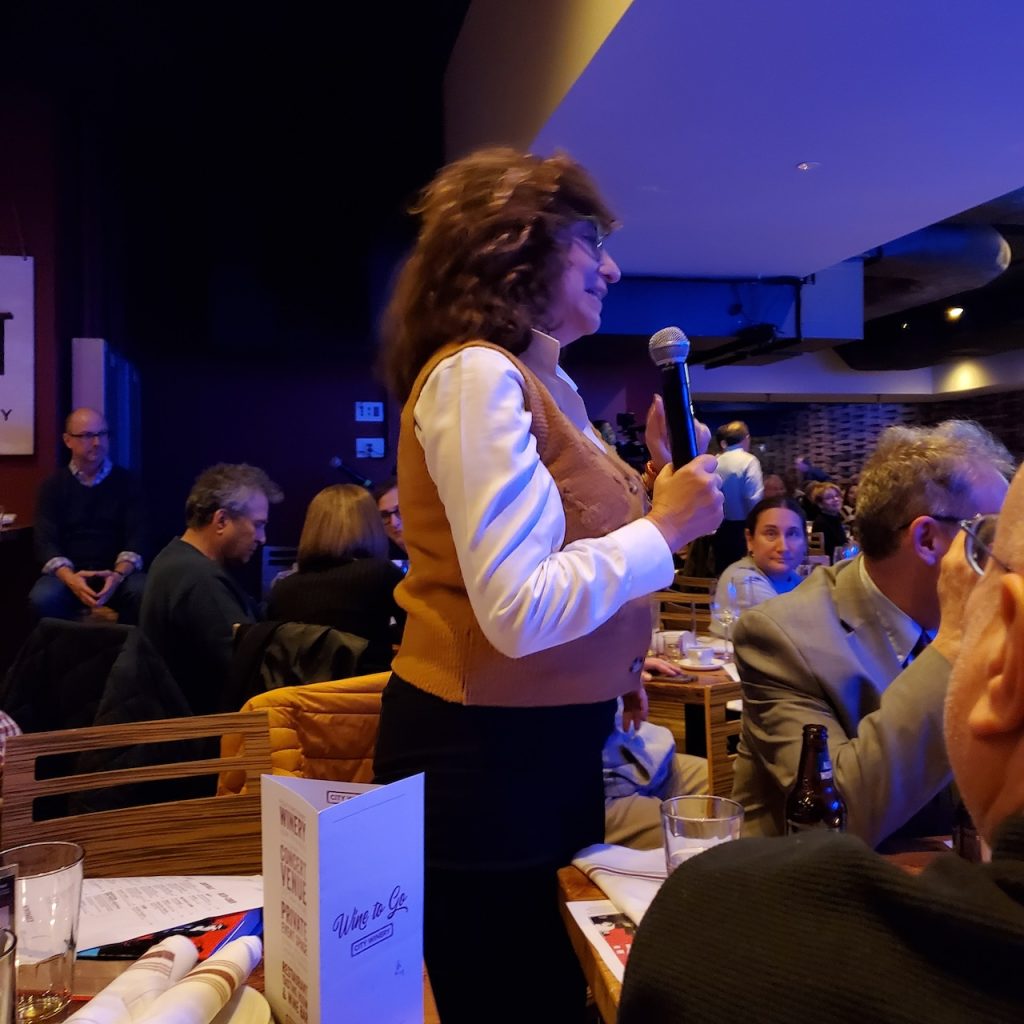
As for who her favorite Beatle was, Bernstein said first it was George, because he was “pretty,” but she then switched to John.
“Everyone liked Paul,” she said. “It was always about Paul. But John was edgier. He was the intellectual of the band.” But she said she eventually came to realize that “Paul was the force in the band. He was an amazing [musical] experimenter.”
By 1970, though, the Beatles had broken up.
“I felt awful,” Morrow said. “We knew that there was a lot of trouble in the group — egos, wanting control. Then, of course, some of the ladies got involved and that caused a lot of problems,” he said, referring to Yoko Ono and presumably Linda McCartney. “Could they have lasted a few more years?” he wondered. “The pressure would have been terrible.”
“It was happening just as I was graduating from high school,” Bernstein recalled of the band’s parting ways. “It was like this fall from grace, that everything in life is not perfect.”
Morrow said, at first, radio stations kept on playing Beatles hits from 1963 through ’65, rather than their new solo cuts, noting, “We didn’t want to upset the listeners.”
Again, highlighting the power of radio back then, he recalled when the Beatles were staying at the Warwick Hotel and someone stole Ringo’s St. Christopher medallion necklace. Morrow asked if it was real gold, to which the drummer retorted, “I only wear real gold.”
Morrow put out the word over the airwaves and promised that if the necklace was returned, the person would get to kiss Ringo. A Mrs. McGowan from the Bronx called to report her daughter Angie had “found” the necklace. (She had actually ripped it off his neck.) Assured that nothing would happen to her, Angie returned it and she and her friend got to hug and kiss Ringo.
“Whenever I see Ringo, he still has the St. Christopher medallion. He still wears it,” the DJ said, as the crowd applauded.
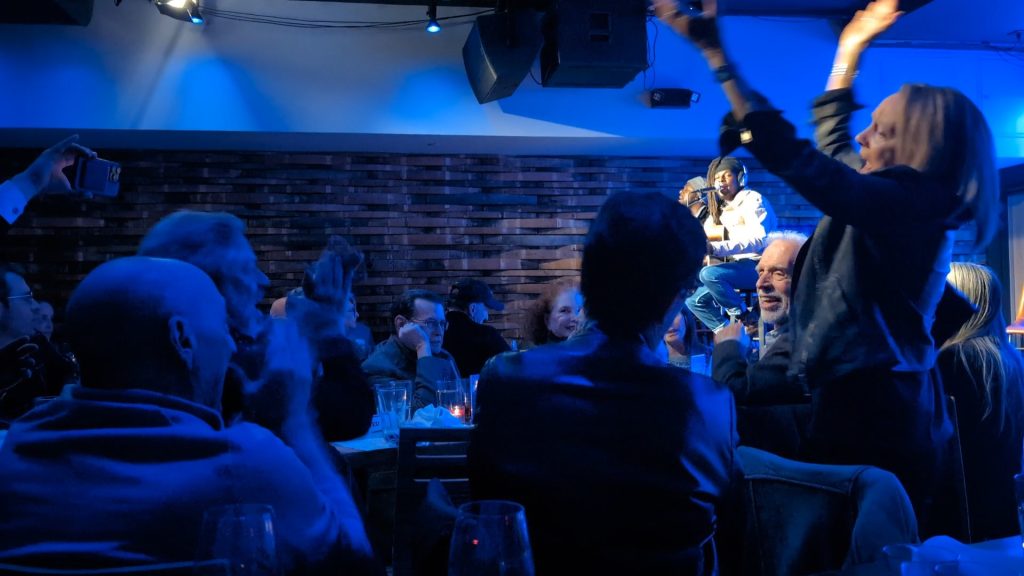
Bernstein recalled visiting the band at their second Ed Sullivan show in 1965. Ringo, who hated the smell of onions, wasn’t in the room because the other three guys were eating burgers with onions.
“They were all smoking their heads off,” she said. The band was “having a little fight” about whether to wear their Chesterfield suits for rehearsal. George just said, ‘C’mon, lads, we have to wear them.’”
Paul was nice to her and asked her about school.
Today the Beatles’ music remains popular, even with younger listeners. Bernstein said her children always enjoyed the band.
“It’s evergreen,” she said. “It never gets old or rusty or anything.”
Audience members also shared stories. Nancy Stern, who grew up in Washington Heights, recounted one “that no one knows.” Her neighbor was the chief engineer at the Warwick Hotel. To get an autograph for her, he removed a light bulb from the TV before the Beatles checked into their room, then came up to reinstall it after they called to complain it wasn’t working. He got her a promo photo of the band, signed by Ringo on the back.
Blac Rabbit — twins Rahiem and Amiri Taylor, who born 30 years after the Beatles first conquered America — performed the band’s songs on acoustic guitar and electric bass at the start and end of the night.
“I feel you’re all part of some really cool club that we didn’t get to go to,” Amiri said, to which someone shouted back, “You’re part of it!”
For the finale, they jammed on “Hey Jude.” Bernstein stood and waved her hands over her head from side to side in time with the music as all joined in on the rousing, famously extended closing, “Na, na, na, na-na-na-na! Na-na-na-na, hey Jude!”
It was definitely a feel-good evening for longtime Beatles fans, recapturing the magic and music of their youth and of a historic moment in time. As the crowd mingled afterward and made their way out, there were a lot of warm smiles on people’s faces.
This was The Village Trip’s first quarterly event, and it was definitely an impressive start of hopefully many more to come. The Village Trip 2024 will take place from Sept. 14 to Sept. 24. For more information, visit www.TheVillageTrip.com.

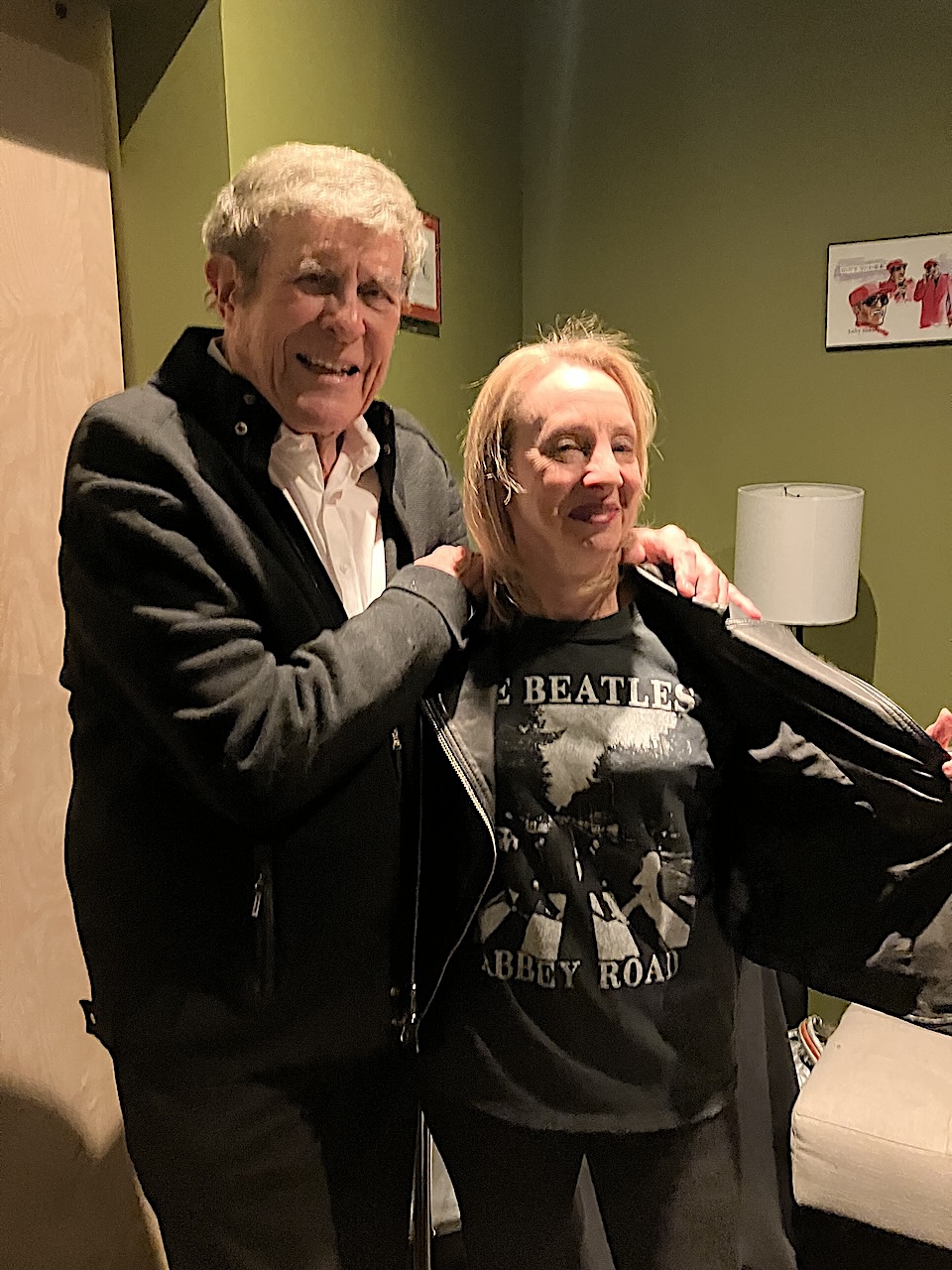
Be First to Comment